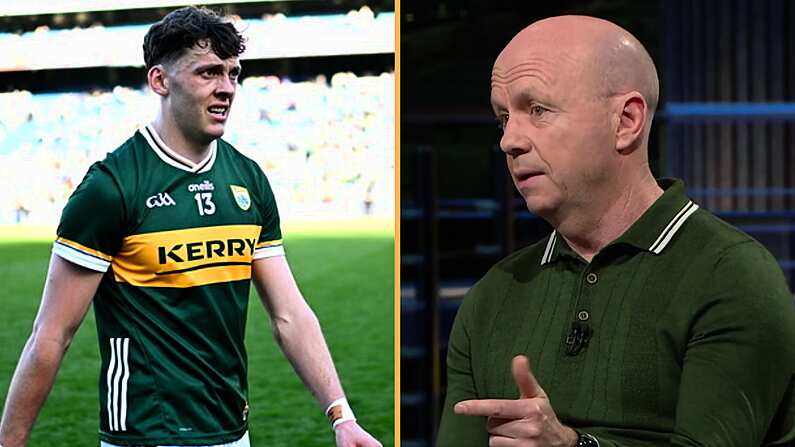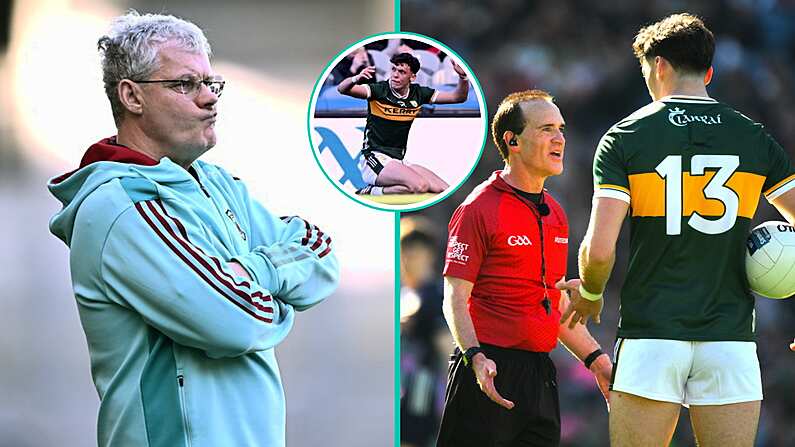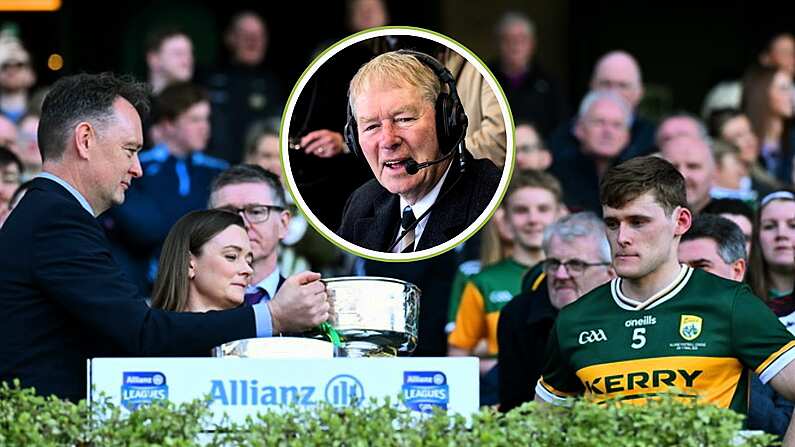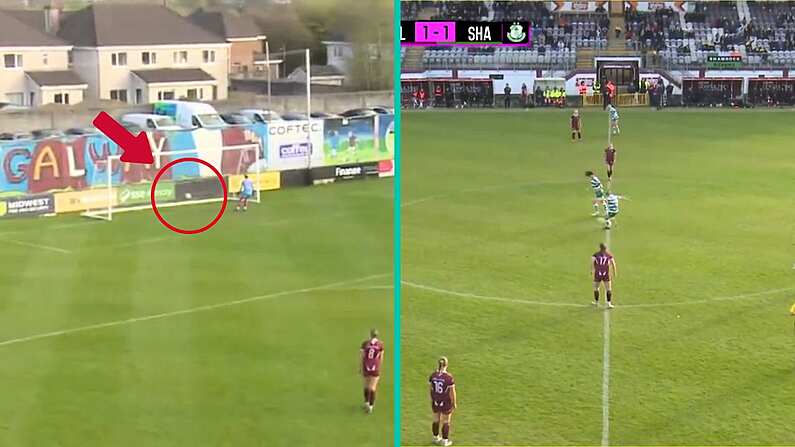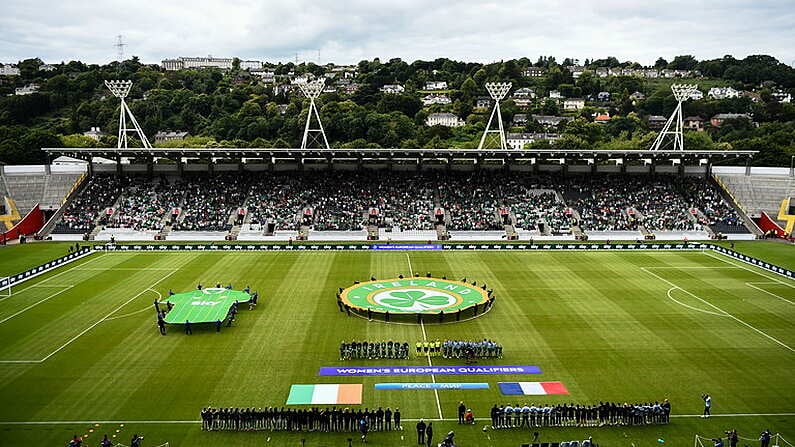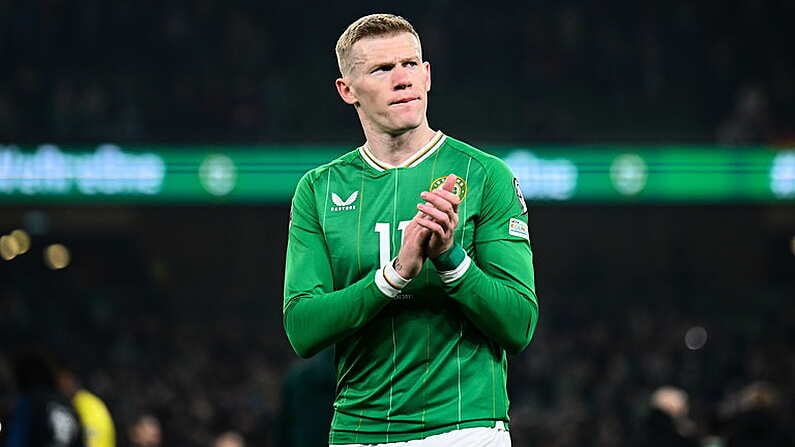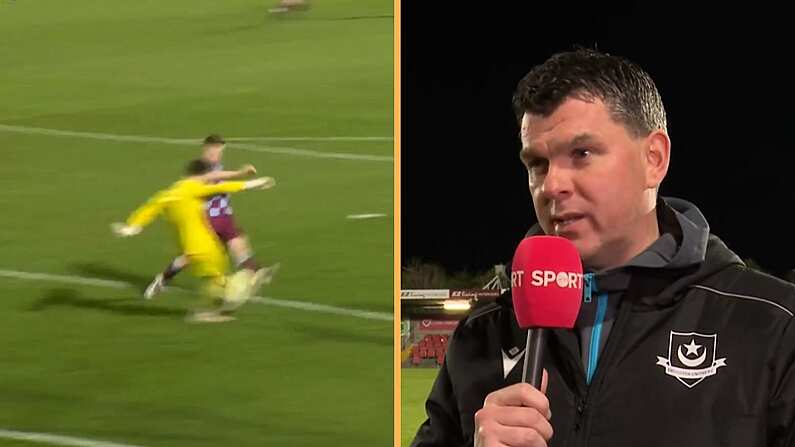Another night of uniquely familiar torment.
A fleeting commitment to passing football, the reversion to less complex football once under pressure, the eventual attaining of the result we expected, being told the result justifies the means, the tetchy Martin O'Neill interview.
Ireland/Moldova went along the lines of how many Irish qualifiers go.
But why did it unfold as it did? Here we look at some of the reasons why it went as it did.
Wes brings the best out of James McClean
Last night was a very good night for James McClean. Damien Duff said on RTE post-game that the Derry winger won the game single-handedly, and while he scored the all-important goals, this is not wholly true.
McClean was frustratingly careless in possession at times last night, and struggles to beat a defender if he can't do him for pace by going around him.
He did his best work for Ireland when roving inside towards the centre, and the presence of Wes Hoolahan helped this enormously. When Wes is playing centrally, his teammates know that, firstly, he will get on the ball, and secondly, he will try and play the ball into feet.
Hoolahan may be the smallest object in the world to have its own gravitational pull, and the more he dragged McClean centrally, the better the latter played.
Consider the opening goal. McClean drifted in centrally towards Hoolahan, leaving space for Shane Long to run into behind:
McClean posed a threat drifting inside against Georgia on Thursday, but these chances often came via crosses and long, diagonal passes.
Build-up with Wes in the team was more structured, and as a result, allowed Long profit on space created.
O'Neill has been cognisant of the fact that McClean is often better in the centre: he played him up front in a friendly game against Switzerland ahead of the Euros earlier this year.
McClean lacks the trickery to consistently beat a full-back when one-on-one, and is often not helped by the fact that Stephen Ward is the full-back playing behind him on the left-wing. Whereas Seamus Coleman can distract the opposing full-back on the right-wing, Ward, for all his improvement and reliability, does not possess the same attacking instincts.
McClean later took his goals extremely well: especially the second, as it necessitated him sorting out his feet with alacrity.
Duffy's mistake was bad, but not the worst sign in the world
Ireland games often take on the usual structure. We start well, score, and then sit back, inviting the opposition onto us before inevitably conceding.
This was how the Serbia game played out, and this phenomenon has been analysed in detail here.
Against Moldova, however, we scored early and kept attacking. Whereas the Georgian game was noticeable for the total lack of Irish pressing in the first-half, Ireland pushed up on Moldova and, most encouragingly, we kept pushing high.
Look how high Glenn Whelan pushed up early on, for example:
This is an extremely encouraging trend from Ireland, but unfortunately, it caught us out just before half-time.
If we want to persist with this aggressive, high-press, Ciaran Clark is quite a good player to have. Clark is quite strong at front-foot defending: he is aggressive, and when it works, it's an advantage. For example, about five minutes before half-time, Clark won back possession on the edge of the Moldova penalty area, that led to Jon Walters being fouled, earning a free-kick in a dangerous position that McClean ultimately wasted.
When it goes wrong: it's glaringly bad. The crazy sprint across field against Belgium in the Euros springs to mind.
Clark's willingness to push up, however, cost Ireland in this game.
Shane Duffy is extremely slow on the turn, and looks uncomfortable playing that high. This also exacerbates the occasional lapses in positional play he is prone to: the most galling example of which was the second French goal at the Euros, as he rushed out of position at centre-back, ultimately leaving space for Griezmann to score.
Against Moldova, Duffy came under the microscope, but the position of Clark is interesting also: he's much too high, and has pushed up without really taking any notice of where Duffy is.
This leaves Randolph as the only Irish player in his own half of the field, and Duffy - painfully aware of how slow he is on the turn - feels that he has to go and win the ball in the air, rather than be exposed on the deck. Hence why he moves towards the ball, only to realise that he won't win it in the air.
Duffy is a fine defender for Ireland in the kind of last-ditch rearguard action that we'll undoubtedly indulge in as the competition goes on, so he will certainly having a role going forward.
Clark has his positive aspects too, but you feel that their central defensive partnership may never fully work.


